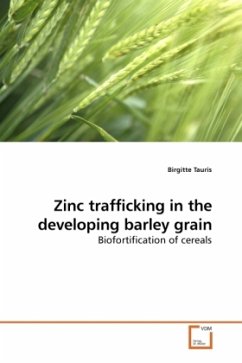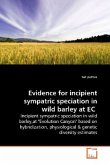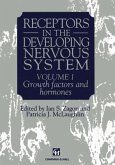Zinc deficiency is a serious problem for almost half the world s population leading to extensive health related costs for the affected people. In order to restrain the problem with zinc deficiency it will be necessary to develop crop plants with a higher bioavailable content of minerals that frequently cause malnutrition. To improve the zinc content in cereal plants a better understanding is needed of all the mechanisms involved in zinc uptake from the soil, the transporting pathways in the plant and the final import and deposition of zinc in the developing grains. This book is the result of a PhD project where the overall aim was to identify zinc transporters and metal chelators with putative central roles in import or deposition of zinc in the barley grain. A broader knowledge of these biological processes may enable the improvement of crop plants by increasing the bioavailable content of zinc in the edible part of the cereal grain. The subjects that are described in this thesis will mainly be of interest to scientists involved in biofortification of cereals.
Bitte wählen Sie Ihr Anliegen aus.
Rechnungen
Retourenschein anfordern
Bestellstatus
Storno








